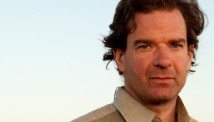Zarvan
ELITE MEMBER

- Joined
- Apr 28, 2011
- Messages
- 54,470
- Reaction score
- 87
- Country
- Location

HIDE CAPTION
Iraq under siege
New America Foundation and the author of ""The Longest War: The Enduring Conflict between America and Al-Qaeda," which this story draws upon.
(CNN) -- ISIS, the brutal insurgent/terrorist group formerly known as al Qaeda in Iraq, has seized much of western and northern Iraq and even threatens towns not far from Baghdad.
From where did ISIS spring? One of George W. Bush's most toxic legacies is the introduction of al Qaeda into Iraq, which is the ISIS mother ship.
If this wasn't so tragic it would be supremely ironic, because before the U.S. invasion of Iraq in 2003, top Bush officials were insisting that there was an al Qaeda-Iraq axis of evil. Their claims that Saddam Hussein's men were training members of al Qaeda how to make weapons of mass destruction seemed to be one of the most compelling rationales for the impending war.

Peter Bergen
After the fall of Hussein's regime, no documents were unearthed in Iraq proving the Hussein-al Qaeda axis despite the fact that, like other totalitarian regimes, Hussein's government kept massive and meticulous records.
The U.S. Defense Intelligence Agency had by 2006 translated 34 million pages of documents from Hussein's Iraq and found there was nothing to substantiate a "partnership" between Hussein and al Qaeda.
Two years later the Pentagon's own internal think tank, the Institute for Defense Analyses, concluded after examining 600,000 Hussein-era documents and several thousand hours of his regime's audio- and videotapes that there was no "smoking gun (i.e. direct connection between Hussein's Iraq and al Qaeda.)"
most important Shia shrine in the world.
Three years into the Iraq War, AQI seemed all but unstoppable. A classified Marine intelligence assessment dated August 17, 2006, found that AQI had become the de facto government of the western Iraqi province of Anbar, which is strategically important because it borders Jordan, Syria and Saudi Arabia and makes up about a third of the landmass of Iraq.
In addition, AQI controlled a good chunk of the exurban belts around Baghdad, the "Triangle of Death" to the south of the capital and many of the towns north of it, up the Tigris River to the Syrian border.
Thus AQI controlled territory larger than New England and maintained an iron grip on much of the Sunni population.
In other words, the Bush administration had presided over the rise of precisely what it had said was one of the key goals of the Iraq War to destroy: a safe haven for al Qaeda in the heart of the Arab world.
By 2007, al Qaeda's untrammeled violence and imposition of Taliban ideology on the Sunni population provoked a countrywide Sunni backlash against AQI that took the form of Sunni "Awakening" militias. Many of those militias were put on Uncle Sam's payroll in a program known as the "Sons of Iraq".
The combination of the Sunni militias' on-the-ground intelligence about their onetime AQI allies and American firepower proved devastating to al Qaeda's Iraqi franchise. And so, between 2006 and 2008, AQI shrank from an insurgent organization that controlled territory larger than the size of New England to a rump terrorist group.
But AQI did not disappear. It simply bided its time. The Syrian civil war provided a staging point over the past three years for its resurrection and transformation into the "Islamic State of Iraq and Syria," or ISIS. And now ISIS has marched back into western and northern Iraq. Only this time there is no U.S. military to stop it.
Follow us on Twitter @CNNOpinion.
Join us on Facebook/CNNOpinion.
Opinion: Bush's toxic legacy in Iraq - CNN.com
